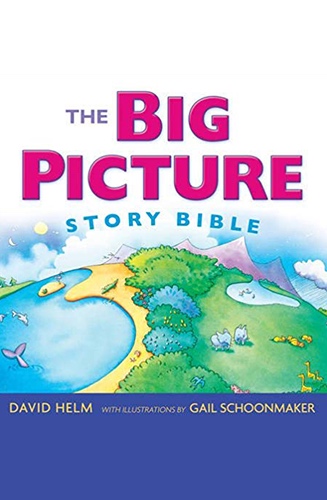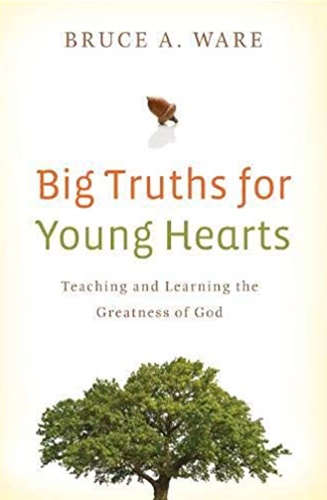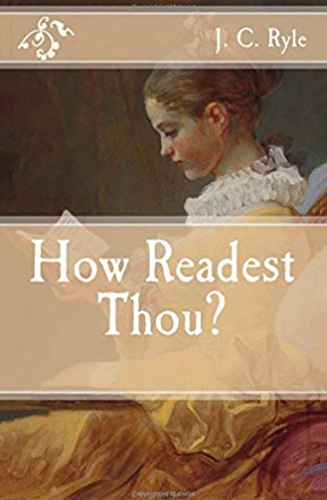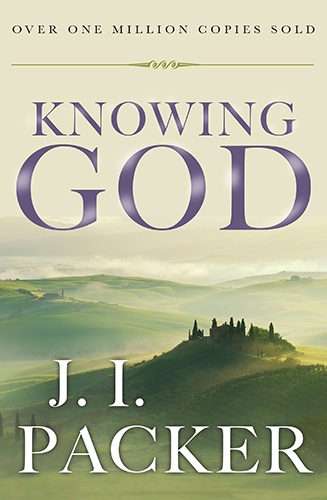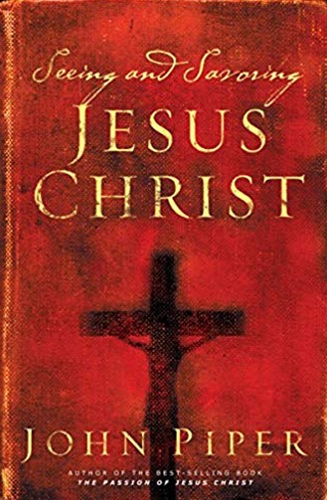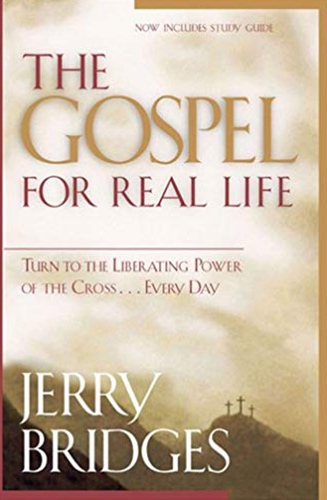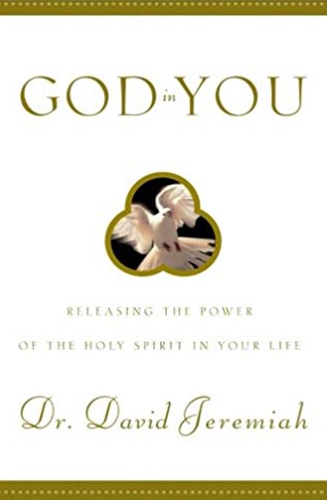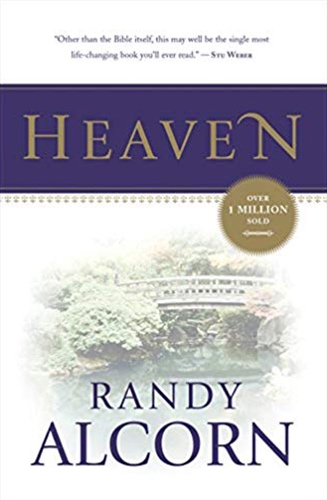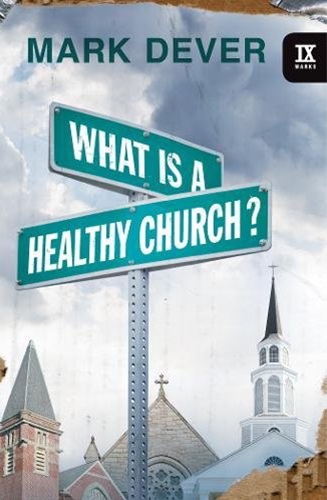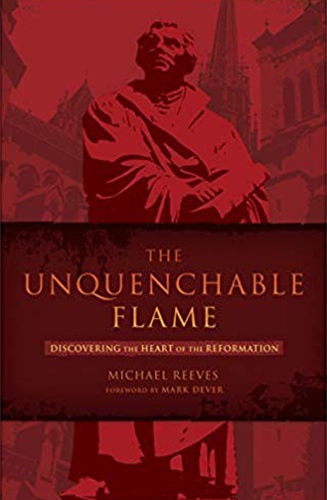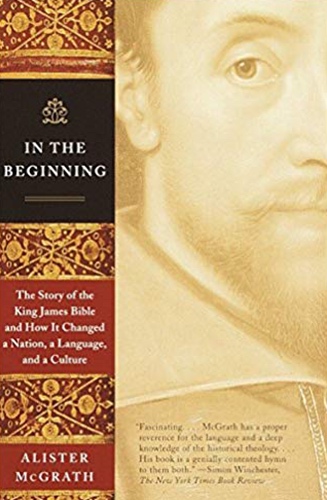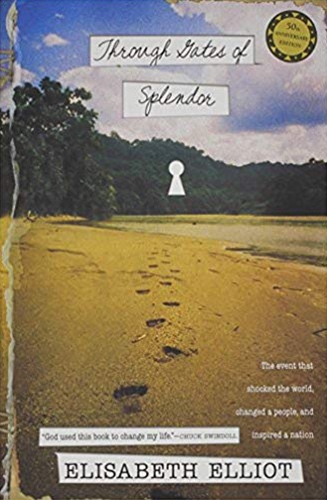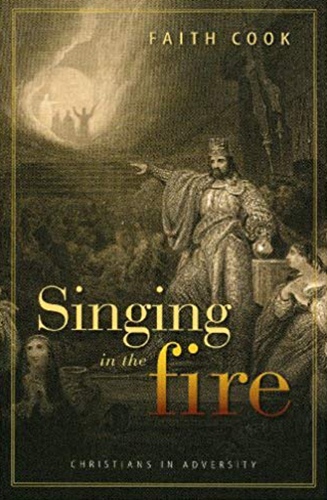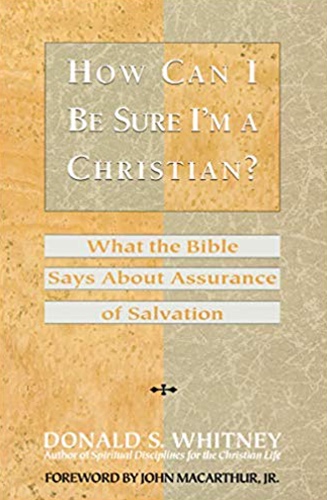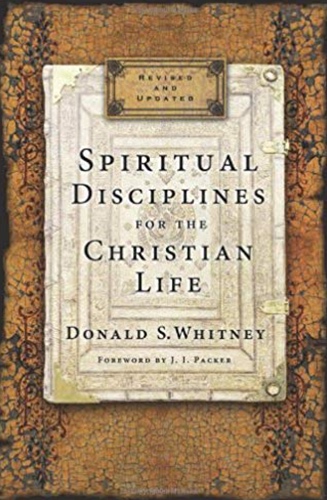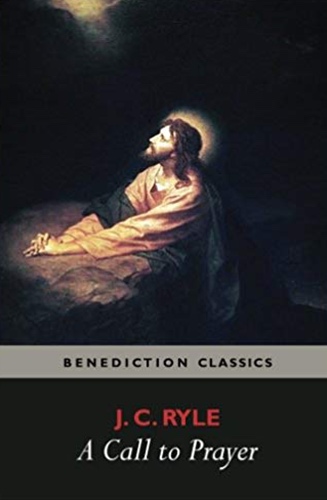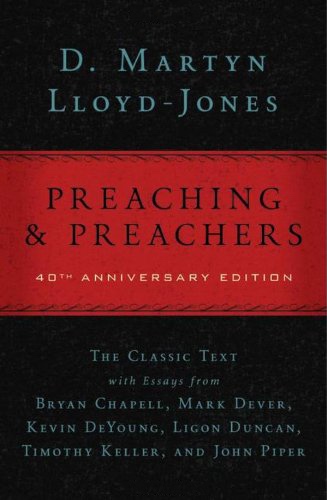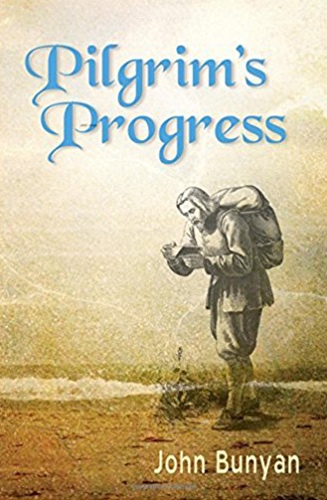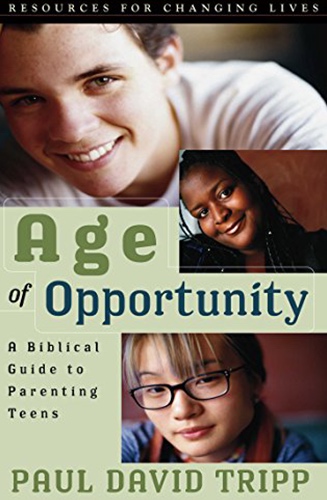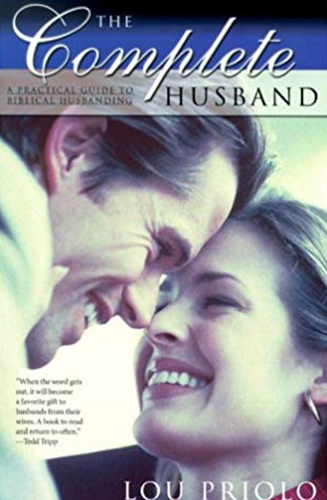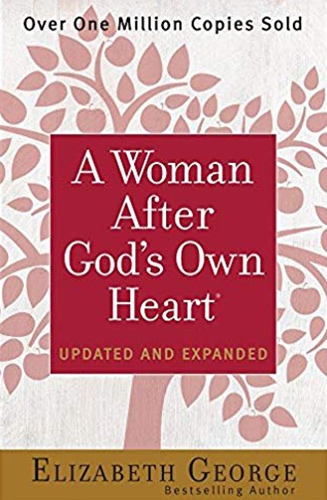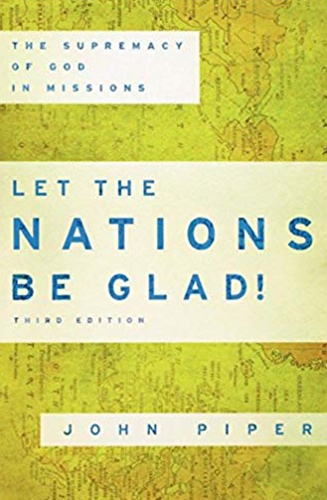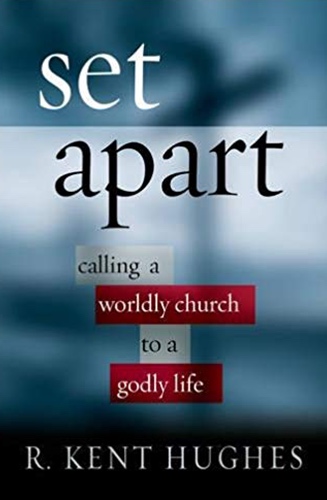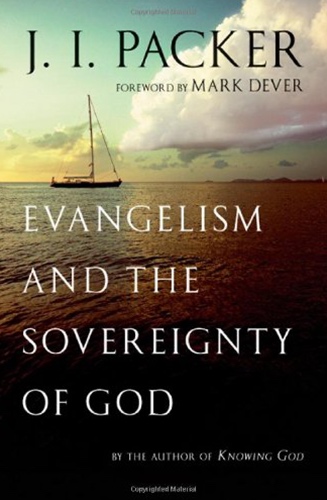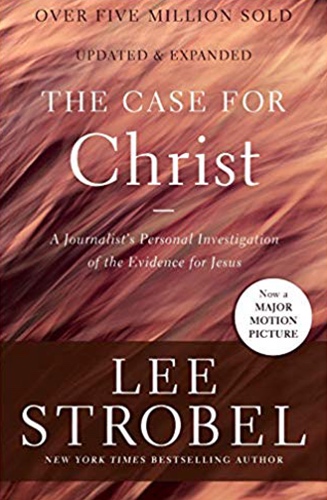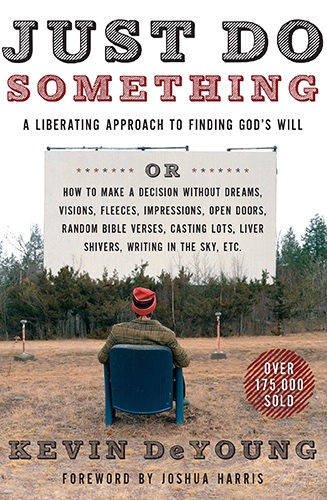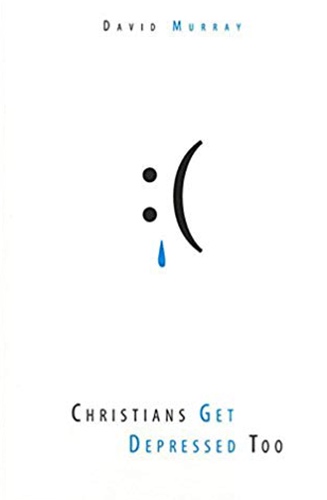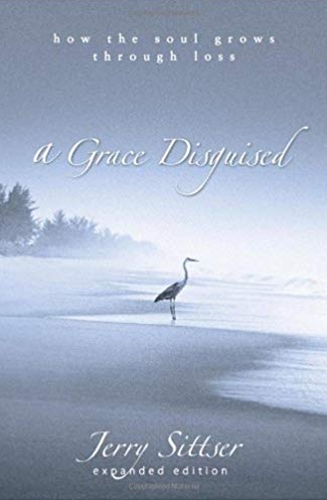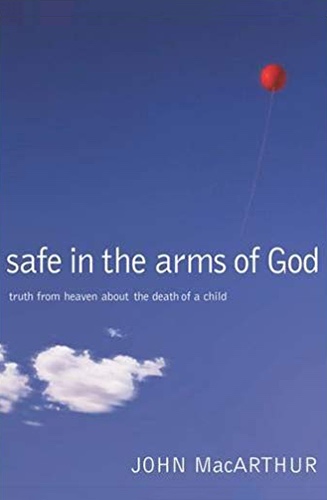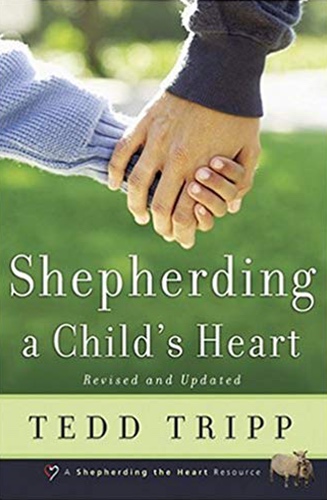RECOMMENDED BOOKS
Tri-County provides a bookstore in the welcome center where those who attend services can both preview and purchase great resources. In compiling the list below, we've tried to think of the resource in each category that is the single-best, most accessible volume on the market. Many (but not all) of the resources in the list are available on any given Sunday. We provide all of the resources at cost (usually Amazon's cost rounded to the nearest dollar) and make little-to-no profit from the sales. Our goal is to provide the congregation with the fifty most basic, most beneficial, and least expensive resources for growth in Christlikeness.
1. BIBLICAL THEOLOGY
- God’s Big Picture (Vaughan Roberts) This brief overview of the whole Bible is a great introduction to “the big picture” of the Bible.
- The Big Picture Story Bible (David Helm) This children’s story Bible, based on Vaughan Roberts’ summary, is really helpful for both children and their parents, too.
2. SYSTEMATIC THEOLOGY
- The London Baptist Confession of 1688 (ed. Peter Masters) This historic confession is an outstanding summary of Christian teaching. Though it’s readily available online, Peter Masters has a helpful 30-page printed edition.
- Big Truths for Young Hearts (Bruce Ware) Ware’s overview of basic teaching about God is designed for children.
- How Readest Thou? (J.C. Ryle) Ryle’s love for the Bible is contagious. His teaching about the Bible is beautiful, succinct, and comprehensive.
- Knowing God (J.I. Packer) Packer’s modern classic on who God is and what He had done for us will both strengthen your mind and stir your heart.
- Hallmarks of Design: Evidence of Purposeful Design and Beauty in Nature (Stuart Burgess) Burgess’ book on evidence for design in creation is simple, reverent, and compelling.
- Trusting God (Jerry Bridges) Bridges unpacks the Bible’s teaching on God’s sovereign providence and helps us become better “trusters” by becoming better “theologians.”
- Seeing and Savoring Jesus Christ (John Piper) It’d be hard to find a simpler, more comprehensive, more stirring, and more Scriptural description of the person and work of Jesus.
- The Gospel for Real Life: Turn to the Liberating Power of the Cross…Every Day (Jerry Bridges) Bridges’ explains the multi-faceted jewel of salvation and shows how each facet applies to the daily life of Christians.
- Basic Christianity (John Stott) Stott works through “the simple plan of salvation” in a way that is helpful for believers and skeptics alike.
- God in You (David Jeremiah) In a day of great confusion about the Holy Spirit, David Jeremiah’s expositional book “majors on the majors.”
- Stop Dating the Church!: Fall in Love with the Family of God (Josh Harris) Harris’ book is designed for people who tend to be non-committal for whatever reason.
- What Is a Healthy Church? (Mark Dever) Dever provides a succinct, biblical answer to his titular question.
- Heaven (Randy Alcorn) Ever wonder what heaven will be like? Let Alcorn unpack the Bible’s teaching in a way that will correct your misconceptions and fuel your hope.
3. HISTORICAL THEOLOGY
- Ten Great Ideas from Church History (Mark Shaw) Shaw introduces us to the lives and thoughts of “giants” such as Martin Luther, John Calvin, John Wesley, Jonathan Edwards, and William Carey, etc., always with an eye to personal and church application.
- Unquenchable Flame (Michael Reeves)This book provides the starting place if you want to know what happened in the Protestant Reformation of Jesus’ church.
- In the Beginning: The Story of the King James Bible and How It Changed a Nation, a Language, and a Culture (Alister McGrath) McGrath’s history of the King James Version of the Bible is a page-turner. Each chapter is a compelling summary of vast historical territory: the history of the English crown, the English reformation, the English Bible, the English language, etc.
- The Hidden Smile of God: The Fruit of Affliction in the Lives of John Bunyan, William Cowper, and David Brainerd (John Piper) Do you ever think you’re odd because you suffer as much as you do? Let these three biographies teach you that suffering is normal for God’s children.
- Through Gates of Splendor (Elisabeth Elliot)Read the classic account of Jim Elliot’s inspiring, yet tragic endeavor to evangelize one of the most unreached tribes in the world-written by his wife.
- Singing in the Fire: Christians in Adversity (Faith Cook) An inspiring collection of several brief biographies designed to fuel your perseverance in times of trial.
4. PRACTICAL THEOLOGY
- Morning & Evening (C. H. Spurgeon, Alistair Begg) Even though Spurgeon’s exegesis can be “creative” at times, if you want a Christ-centered, substantive, encouraging devotional, this is one of the best.
- How Can I Be Sure I’m a Christian? (Don Whitney) What Christian hasn’t struggled with this question. Whitney’s book is simple, biblical, careful, pastoral, and very helpful.
- Spiritual Disciplines for the Christian Life (Don Whitney) Whitney’s challenges Christians to develop disciplines such as Bible intake, prayer, fasting, journaling, etc. His admonitions are neither legalistic nor light-and-easy.
- A Call to Prayer (J.C. Ryle) Ryle knows how to repeat biblical challenges so that his listeners immediately change their habits.
- Praying with Paul: A Call to Spiritual Reformation (D.A. Carson) In order to teach believers how to pray, Carson expounds the prayers of Paul throughout his New Testament letters.
- Preaching and Preachers (Martyn Lloyd-Jones) This modern classic unveils what we at Tri-County understand good preaching to look like. It also gives boatloads of wise advice to preachers young and old on how to preach.
- Pilgrim’s Progress (John Bunyan) If you haven’t read this four-century-old classic on Christian perseverance, you don’t know what you’re missing.
- Sex Is Not the Problem (Lust Is): Sexual Purity in a Lust-Saturated World (Josh Harris) Josh’s challenge to moral purity is appropriate for men and women. It is very biblical and very practical, and it deal with our both our hearts and habits.
- The Complete Husband (Lou Priolo) Lou offers every husband tons of practical tips on how to sacrificially love his wife. His two chapters on communication are “worth their weight in gold.”
- Disciplines of a Godly Man (Kent Hughes) Hughes’ teaching on biblical manhood should be required annual reading for single and married men, young and old.
- Feminine Appeal (Carolyn Mahaney) This book unpacks Titus 2, and in so doing provides a great example of “older women teaching younger women.” You can also check out the free MP3s and PDF study guides online.
- A Woman after God’s Own Heart (Elizabeth George) George provides a simple, helpful treatment of biblical womanhood.
- Marriage, Divorce & Remarriage (Jay Adams) This book represents the best, simplest treatment of these very difficult, very relevant, very “hot” topics.
- God, Marriage & Family (Andreas Kostenberger) This volume is well researched but not written in an academic style. Almost like a simple encyclopedia, it deals with the entire Bible’s teaching on matters like marriage, singleness, homosexuality, divorce, and parenting.
- The Prodigal God (Tim Keller) The parable of the prodigal sons has formative truth for both Christians and churches about the dangers of two kinds of waywardness: reckless rebellion and religious rebellion.
- Humility (C.J. Mahaney) The first half of Mahaney’s brief book is expositional; the second half is “how to.” The book as a whole is deeply convicting and potentially life-changing.
- You Can Change (Tim Chester) Chester offers a helpful, succinct overview of how God uses His word to change people to be more like Jesus.
- The Treasure Principle (Randy Alcorn) Alcorn provides a small, powerful overview of the Bible’s teaching on financial stewardship.
- Let the Nations Be Glad! (John Piper) “Missions exists because worship doesn’t.” Let Piper teach you the “why” of missionary endeavor while fueling your passion for missions with numerous biographical vignettes.
- Set Apart (Kent Hughes) Christians are to be in the world, but not of the world. Hughes talks about several specific areas in which Christians must not be like the world if we have any hope of winning the world.
- Evangelism and the Sovereignty of God (J.I. Packer) Packer’s brief work on evangelism explains the what, the why, and the how.
- The Case for Christ (Lee Strobel) Strobel offers a very readable introduction to Christian apologetics that is very appropriate for both Christians and non-Christians.
- Unpacking Forgiveness (Chris Brauns) This book represents the single-best treatment on biblical forgiveness, and it doesn’t avoid the sticky issues.
- Just Do Something (Kevin DeYoung) How should Christians make wise decisions? DeYoung’s answers are straightforward, thoroughly biblical, very practical, and often filled with humor.
- Christians Get Depressed Too (David Murray) Murray’s advice is brief, biblical, and not overly simplistic.
- A Grace Disguised (Jerry Sittser) This short book on loss is not preachy. It will make you cry, counsel you when you can’t stop crying, and help you to empathize with others who are crying.
- Safe in the Arms of God (John MacArthur) John deals directly with the prevalent and theologically-loaded question, “Where do infants go when they die?”
- Shepherding a Child’s Heart (Tedd Tripp) and Age of Opportunity: A Biblical Guide to Parenting Teens (Paul David Tripp) These two books from the Tripp brothers represent some of the best teaching on parenting-how to raise children, and how to raise specifically teenagers. They don’t present easy one-size-fits-all how-to’s. Instead, they challenge parents to get at the hearts of their children.
BIBLICAL THEOLOGY
SYSTEMATIC THEOLOGY
This historic confession is an outstanding summary of Christian teaching. Though it’s readily available online, Peter Masters has a helpful 30-page printed edition.

